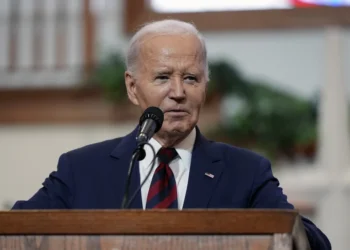With his latest executive order on Monday, President Donald Trump took on another problem head-on — namely, outrageous prices for pharmaceuticals in the United States. It’s not exactly an orthodox conservative solution, but neither is it quite the same as price controls.
His order states:
The United States has less than five percent of the world’s population and yet funds around three quarters of global pharmaceutical profits. This egregious imbalance is orchestrated through a purposeful scheme in which drug manufacturers deeply discount their products to access foreign markets, and subsidize that decrease through enormously high prices in the United States.
The United States has for too long turned its back on Americans, who unwittingly sponsor both drug manufacturers and other countries. These entities today rely on price markups on American consumers, generous public subsidies for research and development primarily through the National Institutes of Health, and robust public financing of prescription drug consumption through Federal and State healthcare programs. …
This abuse of Americans’ generosity, who deserve low-cost pharmaceuticals on the same terms as other developed nations, must end. Americans will no longer be forced to pay almost three times more for the exact same medicines, often made in the exact same factories. As the largest purchaser of pharmaceuticals, Americans should get the best deal.
Trump directed his administration to ensure that drugmakers offer most-favored-nation pricing to American consumers. In other words, Trump isn’t setting the price per se, but he is mandating that pharmaceutical companies charge Americans the same (lower) price patients pay in foreign countries.
“The principle is simple — whatever the lowest price paid for a drug in other developed countries, that is the price that Americans will pay,” Trump explained at the White House yesterday. “Some prescription drug and pharmaceutical prices will be reduced almost immediately by 50 to 80 to 90%.” The United States, he added, “will no longer tolerate profiteering and price gouging from Big Pharma.”
He dismissed the idea that this amounts to price controls, saying that “price control was what [drugmakers] were doing.”
As just one example of the incredible price difference, The Wall Street Journal reports, “The [U.S.] list price for diabetes medication Jardiance was $611 for a 30-day supply last year … compared with $70 in Switzerland and $35 in Japan.”
Nevertheless, if you think this whole thing sounds suspiciously like something Bernie Sanders would propose, well, you’re right.
“I have a couple of kids who are Democrats, are big Bernie Sanders fans,” said Health and Human Services Secretary Robert F. Kennedy Jr., a lifelong Democrat, as he stood beside Trump. “And when I told them that this was gonna happen, they had tears in their eyes because they thought this was never going to happen in our lifetime, and we finally have a president who’s willing to stand up for the American people.”
Senator Sanders himself issued a press release saying, “I agree with President Trump” on the outrageous price differences. However, “as Trump well knows, his executive order will be thrown out by the courts,” Sanders noted — without acknowledging that his own left-wing hordes are the ones challenging Trump on every single thing he does. It’s true that in this case it will be the pharmaceutical giants, but they donate pretty heavily to Sanders and other Democrats, too.
Still, the ever-so-magnanimous Sanders added, “If Trump is serious about making real change rather than just issuing a press release, he will support legislation I will soon be introducing to make sure we pay no more for prescription drugs than people in other major countries.”
Legislation is indeed the most permanent solution, though I can’t say I trust Sanders to write it. Senators Josh Hawley and Peter Welch have also introduced the Fair Prescription Drug Prices for Americans Act, which largely mimics Trump’s order.
Will Trump, Sanders, Hawley, et al actually fix the problem?
Stephen Ubl, president of the Pharmaceutical Research and Manufacturers of America (PhRMA) lobbyist group, certainly argues against it. He says “the real reasons” for the price differences are greedy insurers and hospitals, not greedy pharmaceutical companies. “We are the only country in the world that lets PBMs [Pharmacy Benefit Managers], insurers and hospitals take 50% of every dollar spent on medicines,” Ubl said. “In fact, hospital markups in [the federal] 340B [program] and the rebates and fees paid to middlemen in the U.S. often exceed the total cost of medicines overseas.” He warns that the result of Trump’s order will be less innovation and investment in America.
Naturally, a lobbyist will shift the blame. But there’s plenty to go around.
The sometimes unbelievable prices for drugs and any kind of medical care have many causes. I’ll name just a few: Employer-provided insurance separates customers from choosing the best product. “Insurance” pays for every sort of routine care (which means it’s no longer insurance but subsidized third-party service) while standing between customers and providers by setting prices and permitting or declining coverage. This inevitably raises prices. The same goes for hospital conglomerates that monopolize healthcare provision.
And don’t get me started on ObamaCare. Democrats like Bernie Sanders aim for a single-payer system where the government controls everything. Like Medicare and Medicaid before it, ObamaCare was a huge step in that direction, causing premiums and the cost of care to skyrocket.
Unless and until Congress addresses these root causes, EOs like Trump’s will merely tinker around the edges of the real problem. The big question going forward will be how pharmaceutical companies respond to Trump’s order. They will definitely sue, but will they eventually play along, or will they raise prices, restrict access, and limit innovation?
There’s plenty of political motivation to go with Trump’s economic impetus. From the Republican standpoint, as analyst Ed Morrissey explains, “It could reduce pressure to make cuts to benefits from Medicare and Medicaid, which would make House Republicans happy for the moment.” And though Sanders may be right that a court will toss Trump’s EO, Democrats will have a hard time arguing that Trump shouldn’t try to lower prescription drug prices as they’ve demanded for years.
Besides, pharmaceutical companies may provide pain-killing, disease-curing, and lifesaving medications, but everyone hates them. That’s why they’re the villains in countless movies, and it’s why both political parties are happy to treat them as punching bags. For the price-gouging, they probably deserve it, but this isn’t nearly as black-and-white as some folks seem to think.

















